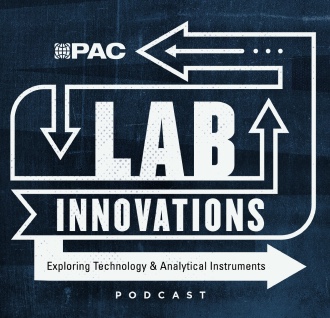-
Accelerating a more sustainable future
Executives are increasingly turning to sustainability as a force multiplier for competitive advantage. In the past, this was typically not a competitive focus simply a means of demonstrating responsible corporate citizenship and so sustainability initiatives often became siloed within the enterprise. Today, sustainability has become central to business operations, emerging as an essential element of a successful strategy. CEOs are discovering that “sustainability” and “profitability” ...
-
Axens is a group providing a complete range of solutions for the conversion of oil and biomass to cleaner fuels, the production and purification of major petrochemical intermediates as well as all of natural gas' treatment and conversion options. The offer includes technologies, equipment, furnaces, modular units, catalysts, adsorbents and related services. Axens is ideally positioned to cover the entire value chain, from feasibility study to unit start-up and follow-up throughout ...
-
BioForming® Sugar to Aromatics (S2A) ready now and fit for the future
The BioForming® S2A process turns sugars into a drop-in aromatic feedstock, BioFormate®. Like its reformate namesake, BioFormate® can be utilized to make a variety of end products such as bio-gasoline, drop-in sustainable aviation fuel (SAF), and bio-BTX (benzene, toluene and xylenes) - molecules used as building blocks for many everyday products, such as pharmaceuticals, polymers and coatings.
-
Biomass availability and sector competition
The present version of the report is a draft sent out for review by selected stakeholders. Subject to exposing our findings to review comments during a webinar June 2nd 2022, the report will be prepared as a final version. The aims of this project have been to: - Provide an overview of recent scientific consensus on future potentials of biomass that are estimated to be sustainably available for non-food/feed purposes, i.e. as feedstock for energy, fuels and materials/chemicals - ...
-
Refiners are facing a new world and new markets as the drive toward sustainability accelerates. Business is leading the change as major global corporations move to increase sustainability and lower greenhouse gas (GHG) emissions. The endgame is to produce low carbon, sustainable fuels while maximizing available resources and reducing waste. Honeywell UOP has shaped the refining process since it began. As a global leader in sustainable fuel technologies, UOP helped pioneer ...
-
Fast pyrolysis bio-oil technology and production
Sustainable, bio-based solutions for the heat, power, biofuels and chemicals industries. Delivering safe, sustainable, quality projects With more than 50 years of experience gained through involvement in 30 grassroots refineries and more than 100 expansion projects, Technip Energies is a leader in the refining industry. The company’s portfolio of technologies includes proprietary refining technologies and equipment for catalytic cracking, and the recovery of refinery offgas ...
-
Fuelling The Future For Cleaner Skies
Creating new revenue streams for ethanol in the aviation sector. We’re expanding our Sustainable Aviation Fuel portfolio to include new Ethanol to Jet fuel technology. Ethanol to Jet fuel represents a new revenue stream for ethanol producers looking for diversification to satisfy the needs of the large and growing aviation market. Producers of SAF can recognize significant value from their fuels because of fuel production credits and airline demand for sustainable solutions ...
-
Heat Management System for Clean Fuels/Biofuel Industry
The current trend to produce clean fuels and biofuels adds new process maintain temperature demands to refining operations, bulk storage and blending facilities. Keeping operations running efficiently is crucial. Chemelex provides a heat management system engineered to protect critical process temperatures and prevent utilities and instrumentation equipment from freezing.
-
How sustainable aviation fuels are poised to dominate the sector
The need to decarbonise the aviation sector has never been clearer. In 2022, the International Air Transport Association (IATA) approved a resolution stating that the global air transport industry would achieve carbon‐neutral status by 2050. However, for a sector fuelled by crude-oil derived kerosene, it’s understandable that many are wondering how it can meet its targets.
-
Jet Zero Strategy: Delivering net zero aviation by 2050
The early evolution of air travel in this country — from the first commercial flight to the first jet airliner, the British Comet — took just 30 years. In that short time, aviation technology developed at an astonishing pace. But it showed what we can achieve. We now have even less time to transform aviation again. Our target of net zero flying by 2050 is hugely challenging. Not just because aircraft have always relied on fossil fuels, but because aviation is only just ...
-
Johnson Matthey licensed processes
A portfolio of advanced process technologies for global markets. Johnson Matthey (JM) develops and licenses proprietary process technologies. We also offer collaborating companies an extensive range of technology development, process design and engineering skill. For over thirty years JM has been engaged in innovative DAVY™ licensing development. Our comprehensive expertise of catalysis and reaction engineering has been tailored to the production of a wide range of chemicals ...
-
Maritime Decarbonization Strategy 2022
The Maritime Decarbonization Strategy reviews the progress of the transition in the shipping sector so far and outlines the actions the industry must take to move closer to the Paris 1.5°C trajectory. The conclusions and recommendations presented in the report are based on analyses and modelling work done by the Mærsk Mc-Kinney Møller Centerfor Zero Carbon Shipping, outcomes from workshops with center partners and other stakeholders across the maritime industry, and the results ...
-
PAC solutions for renewable diesels
Governments and businesses are increasingly committed to steep decarbonization targets, establishing hydrogen as a key component in the energy transition. As of this writing, McKinsey reports that 64 countries, representing 89% of global CO2 emissions, have made net-zero pledges, while financial institutions and private sector enterprises also continue to increase their decarbonization aspirations. Going forward, the energy mix is projected to shift toward clean electricity, complemented ...
-
Advanced analytical measurement solutions for emerging feedstocks
Can sustainability and profitability go hand in hand? Join us for an insightful webinar that explores how advanced analytical measurement techniques can drive both growth and resilience in the petrochemical industry. With expertise in distillation, elemental analysis, and gas chromatography, PAC offers innovative solutions to optimize operations for players in plastic circularity. In this webinar, we will cover trends in the petrochemical market, including emerging feedstocks, ...
-
Proven decarbonisation pathway for sustainable biofuels and chemicals production from waste webinar
The flexibility to make use of varying waste streams as feedstocks to replace primary fossil resources is a common goal in operations today. You may be looking at sources such as woody and agricultural biomass, MSW, RDF, SRF, sewage sludge, or non-recyclable plastic to produce bio or circular chemicals or sustainable fuels: Bio Syngas, green hydrogen, SAF, sustainable maritime fuels, or BioMethanol. The key question is how to decarbonize these assets to meet sustainability and ...
-
Webinar discussing developments and solutions for renewable fuels testing
Regions and nations around the world are swiftly translating their climate targets into investments in renewable energy and fuel production. This necessitates a multifaceted approach and innovative solutions. Join us for this webinar as we report on the latest developments in the renewable fuels industry, with a particular focus on the transportation sector. We will discuss a range of renewable fuels, including SAF, ethanol, biodiesel, hydrogen, and their derivatives, while exploring ...
-
Low cost production of renewable diesel and sustainable aviation fuel
Feed flexibility is critical for operators to stay competitive and deliver high-quality products. But diversifying your feed can bring its own set of challenges. It gets even trickier when working with renewable feedstocks from biological sources. These materials are highly olefinic and might be packed with heteroatom contaminants. To turn them into something valuable, you need substantially more hydrogen than you would for conventional petroleum hydrotreating. We're talking 1,700 ...
-
Navigating Complexities of Renewables Processing: Feedstocks, Legislations, Challenges & Solutions
Refineries are shifting away from producing traditional fuels to remain relevant, compliant and profitable. Join us to learn more about recent developments in renewable feedstocks processing. In this webinar from Ketjen, you will gain an understanding of the regulations and drivers that shape the renewables market. You will also have a chance to learn about operational challenges you may face while processing feedstocks with various amounts and grades of HVO or waste plastic ...
-
Decarbonization with hydrogen solutions
Demand for hydrogen is expected to increase up to ten-fold by 2050 when multiple industry reports predict 8-24% of the world’s final energy demand will be supplied by hydrogen. Hydrogen has a unique ability to address ‘hard-to-decarbonize’ sectors including refining, chemicals, steel, heating, long-haul transport, and long-term power storage — all of which currently produce significant CO2 emissions. To achieve this, hydrogen must be produced with significantly lower carbon ...



























